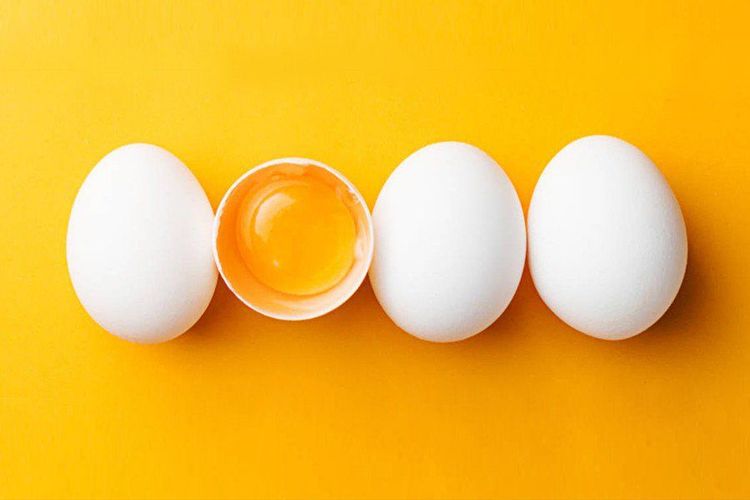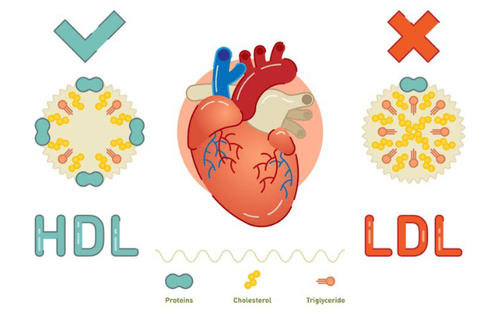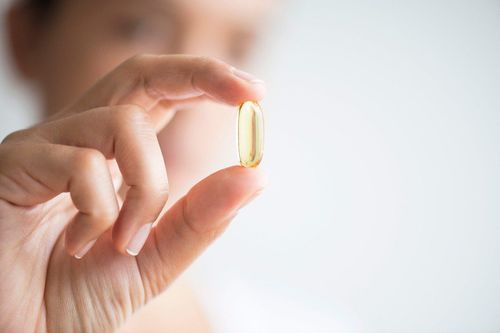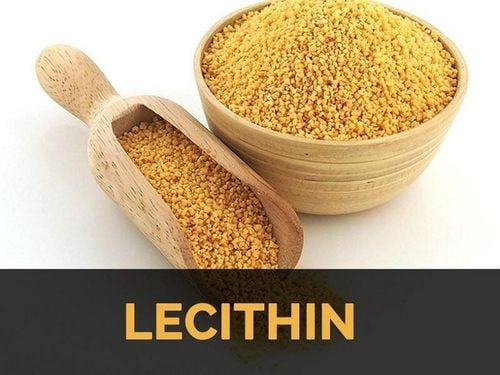This is an automatically translated article.
Chicken eggs are a familiar daily food source for everyone. The nutritional composition in chicken eggs not only provides the body with a great source of nutrients, but also helps to control a number of diseases.
1. Some confusion about eggs
Several decades ago, eggs had a rather inconvenient reputation. Due to the high cholesterol content in eggs, it is considered a harmful food. As the years passed, people almost shunned and did not use eggs in their daily diets. Then, in 2000, the American Heart Association (AHA) revised its guidelines for healthy adults. AHA guidelines allow healthy adults to eat one egg per day and limit total daily cholesterol to 300mg.
The confusion about eggs stems from their cholesterol content. One egg contains 213 mg of cholesterol, which is 2⁄3 of the recommended daily limit. Scientists think that high blood cholesterol is linked to heart disease, and high cholesterol foods should be suspected. But after 25 years of research, it's clear that cholesterol in food isn't the culprit, it's saturated fat that has a much larger effect on blood cholesterol. Fatty dairy products and fatty meats are examples of foods that are loaded with saturated fat and trigger the body to produce cholesterol.
Trắc nghiệm dành riêng cho người mắc đái tháo đường: Chế độ ăn của bạn đã hợp lý chưa?
Người bị bệnh đái tháo đường cần phải quan tâm nhiều hơn đến cách tính toán khẩu phần ăn sao cho phù hợp với nhu cầu và tình trạng sức khỏe. Nếu chưa rõ, bạn có thể tìm hiểu kỹ hơn thông qua bài trắc nghiệm ngắn sau đây.2. Nutritional composition of chicken eggs
Nutrition facts 1 egg with 100 grams edible:
Energy: 166 kcal Protein: 14.8 grams Fat: 11.6 grams Glucid: 0.5 grams Fiber: 0 grams Vitamins: folate (47 mcg), vitamin B12 (1.29). mcg), vitamin A (700 mcg), vitamin D (0.88 mcg), vitamin K (0.3 mcg)... Minerals: Calcium (55 mg), iron (2.7 mg), potassium (176 mg), Zinc (0.9). mg), magnesium (11 mg)... Eggs are foods with high nutritional value. Eggs contain enough protein, lipid, glucide, vitamins and minerals, enzymes and hormones. The nutritional composition of eggs is quite balanced. The protein in the yolk is a type of phosphorus protein, with the best and most comprehensive amino acid composition. Egg yolk protein is mainly simple and exists in soluble form. Egg protein is a good source of amino acids that are lacking in other foods such as tryptophan, methionine, cysteine, and arginine. In addition, chicken eggs are a valuable source of lecithin.

Trứng gà cung cấp một lượng Protein cho cơ thể con người
3. Some benefits of eggs in the diet
3.1. Raised HDL Cholesterol People with high HDL levels have a lower risk of heart disease, stroke and other health problems. Accordingly, eating eggs is a great way to increase HDL levels. In one study, eating two eggs a day for 6 weeks increased HDL levels by 10%.
3.2. Contains Choline Choline is an important nutrient that most people don't get enough from their daily diets. Choline is used to build cell membranes and plays a role in making signaling molecules in the brain, among other functions. Choline deficiency will cause severe symptoms. However, this is very rare.
Eggs are a rich source of choline. This nutrient in one chicken egg accounts for more than 100 mg. Therefore, adding eggs to the daily diet can provide the recommended amount of choline.
3.3. Associated with a reduced risk of heart disease LDL cholesterol is commonly known as bad cholesterol. High levels of LDL are associated with an increased risk of heart disease. However, in order to understand the pathogenesis of LDL, it is necessary to know that LDL is divided into subtypes based on particle size. They can be small and dense LDL particles or large LDL particles. Many studies have shown that people with mostly small, dense seeds have a higher risk of heart disease than those with large seeds. Even though eggs tend to slightly raise LDL cholesterol in some people, studies show that particles change from small dense LDL to large LDL. This is a huge improvement given that the inclusion of eggs in the diet seems to change the pattern of LDL particles and is associated with a reduced risk of heart disease.

Sử dụng trứng có thể làm gia tăng nhẹ Cholesterol LDL ở một số người
3.4. Eggs contain Lutein and Zeaxanthin - Antioxidants beneficial for eye health One of the consequences of aging is that vision tends to get worse. However, there are certain nutrients that can help fight the degenerative process that affects the eyes. Lutein and zeaxanthin are powerful antioxidants that accumulate in the retina of the eye. Studies show that consuming adequate amounts of this nutrient can significantly reduce the risk of cataracts and macular degeneration, two very common eye disorders.
Egg yolks contain large amounts of lutein and zeaxanthin. In a case-control study, eating just 1/3 of an egg yolk daily for 4.5 weeks increased blood levels of lutein by 28-50% and zeaxanthin by 114-142%.
In addition, eggs are also foods rich in vitamin A. Vitamin A deficiency is the most common cause of blindness in the world.
3.5. Omega-3 Not all eggs are created equal. Its nutritional composition will vary depending on the feed and the way the chickens are raised. Eggs of hens raised on pasture or fed foods rich in omega-3 tend to be high in this fatty acid.
Omega-3 fatty acids are known to lower blood levels of triglycerides - a well-known risk factor for heart disease. Studies show that consuming eggs rich in omega-3s is a very effective way to lower blood triglycerides. At the same time, just eating five omega-3-rich eggs per week for three weeks lowered triglycerides by 16-18%.
3.6. High-quality protein with all the essential amino acids Protein has a major role in body shaping. They are used to create all kinds of tissues, molecules for structure and function. Getting enough protein as recommended can help with weight loss, increase muscle mass, lower blood pressure and optimize bone health... Eggs are an excellent source of protein along with all the essential amino acids. weakly proportionally. Therefore, eggs meet the requirements of nutrients for a reasonable diet.

Một khẩu phần ăn từ trứng sẽ hợp lý hơn khi bạn biết cách ăn uống khoa học
3.7. Keeps you full and low in calories Eggs are a rich source of protein - a satiating macronutrient and can reduce calorie intake later in the day. In a study of 30 overweight women who used eggs instead of bread for breakfast, the results showed that these women had an increased feeling of fullness and they ate fewer calories at the next meal. In another study, replacing a full breakfast with an egg breakfast resulted in significant weight loss over an eight-week period.
Vinmec International General Hospital is the address for examination, treatment and prevention of diseases. When performing the examination process at Vinmec, customers will be welcomed and used modern facilities and equipment along with perfect medical services under the guidance and advice of experts. Good doctors, well-trained both at home and abroad.
Customers can directly go to Vinmec Health system nationwide to visit or contact the hotline here for support
Reference sources: webmd.com, livestrong.com, healthline.com .













